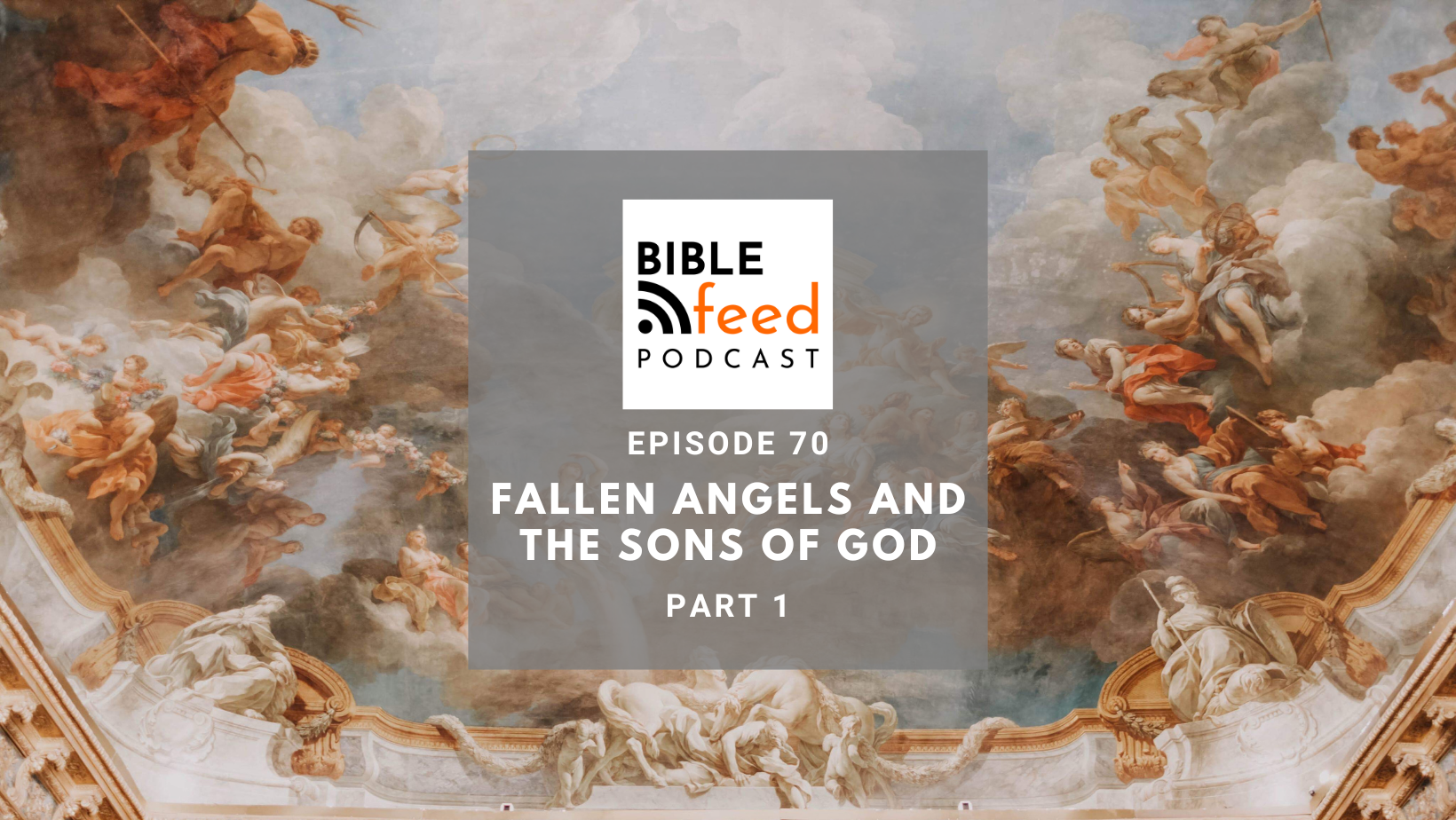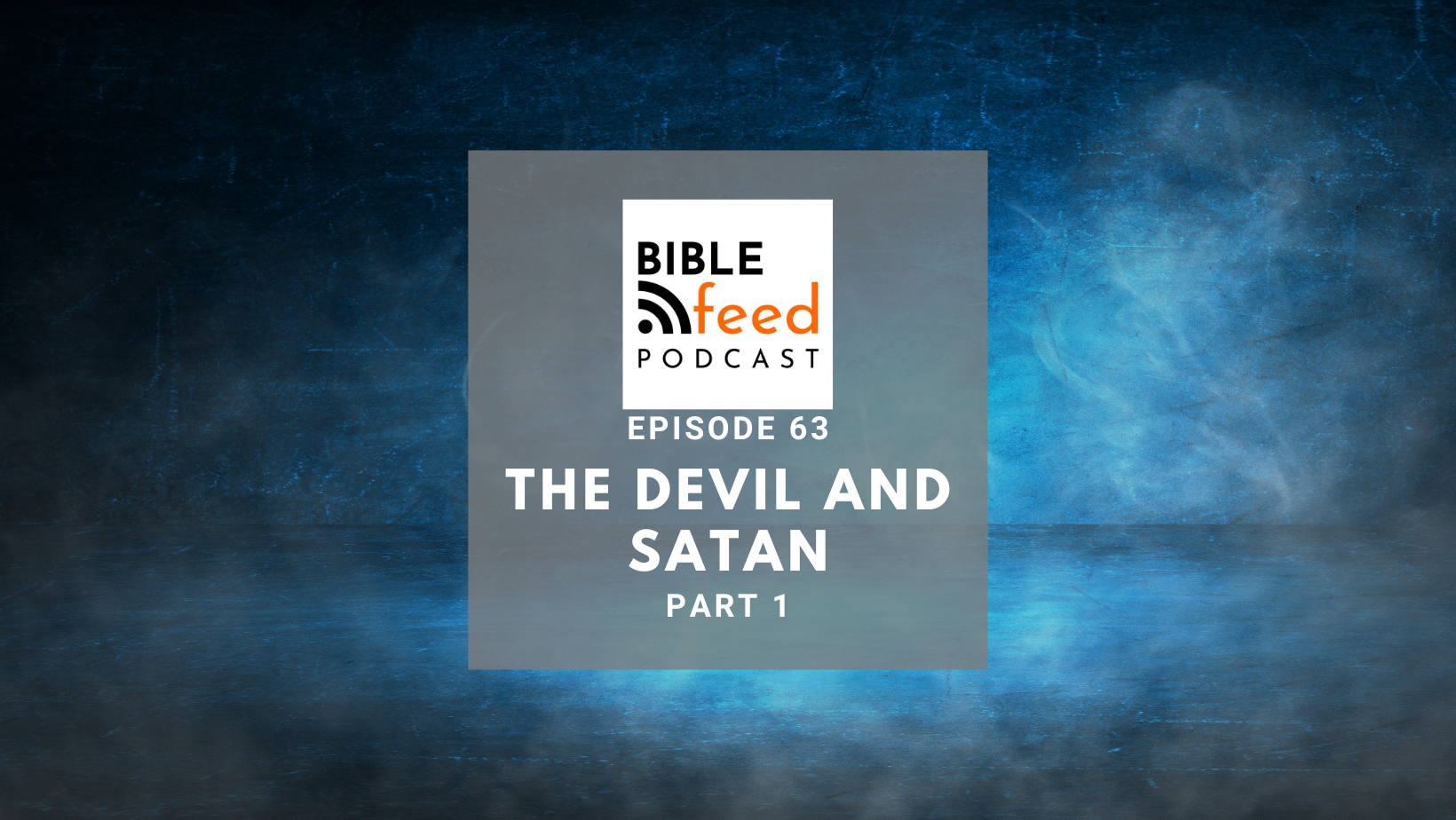Is the phrase 'sons of God' used to refer to angels? If so, does that include spiritual beings with independent power to oppose God and his people? Using the framework of Michael Heiser's book, Unseen Realm, we start to examine what is termed the 'Divine Council' worldview. This involves grappling with some of the most mystifying parts of the Bible text - but hey, we're just ordinary people trying to understand the Bible better!
Paul and Dan embark on a multi-part exploration of the terms Devil and Satan and how they are used through the Bible. They aim to lay some foundations by thinking about how our worldview might affect how we read the Bible and (eventually) start to explore some key verses. The initial conclusion is that they may not be referring to a supernatural being, as is commonly supposed.
A new series to turbocharge your Bible reading! We're starting a series of introductions to books of the Bible to give you a head start on how they are structured and what the main themes are to look out for. We start right at the beginning, with the book of Genesis.
Who is God addressing in Genesis 1:26 when he says "Let us make man in our image"? Is this evidence for the Trinity? Despite the verse often being used in this way, it doesn't take long to find some problems with this conclusion.
The meaning of life is the stuff of song lyrics. But it's also the big question of the book of Ecclesiastes in the Old Testament. At first reading the author of this book seems to be concluding that life is meaningless, but there's more than meets the eye, all of which leads (surprise!) to Jesus and his resurrection.
What or where is heaven? We explore what "heaven" meant to the Biblical writers, concluding that it's much less about a physical location and much more about the presence of God and a relationship that ordinary people (on earth) can have with him through Jesus.
What's the best way of reading this huge, ancient collection of books?! We tackled this question head on in a Bible Feed Live webinar that explored topics from Genesis and genre, to the relevance of Revelation. We give some tips and make some suggestions to help you in your Bible reading.
Becky Lewis discusses with Paul Davenport whether it’s right to think of God as distant and unfeeling, as is often the portrayal in popular culture. By drawing from the Bible from the creation narrative through to how Jesus treated people and on through to the final chapters of Revelation, we find God revealed as deeply invested in seeking close relationships with people and indeed connecting people together in a family.
There is so much baggage attached to the concepts of ‘the Spirit of God’ or ‘the Holy Spirit’ that it can be really difficult to know where to start in understanding what the concept means in scripture and in our daily lives. Sam Thomas talks to Paul Davenport about how to unpick the basic concept and its meaning in scripture. Listen in to find out what it’s all about!
In a two part mini series Paul Davenport talks to Josh Dean about pride and the power of parables. This is all about how human pride is characterised in the Biblical narrative and then also about how the Bible uses stories, or parables, to help us think deeper and challenge ourselves.





